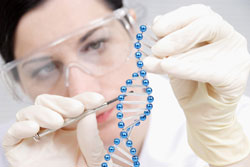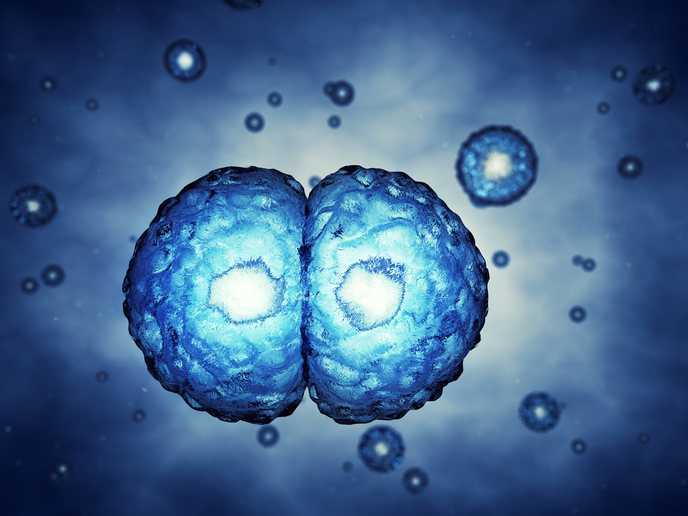Research network for chromosome imbalances
The human genome consists of approximately three billion base pairs. The number of mutations possible is therefore very large indeed and rate of discovery is proceeding at an exponential rate. Types of mutation include alterations in one gene only, and changes on a bigger scale that involve the whole or part of a chromosome. Project partners in ECARUCA have focused their attention on smaller chromosomal changes. These include microdeletions when a small part of the genome is missing and microduplications when a tiny, also submicroscopic region is duplicated. Clinical geneticists at the Radboud University Nijmegen Centre in Holland have set up a Microdeletion Research Network that consists of seven scientific groups. These are distributed throughout Europe and they are all working in cooperation on chromosomal microdeletions. Their efforts have, and will continue to centre on the identification of the mutation and the genes involved. Information is disseminated primarily through the project website, see www.ECARUCA.net Massive jumps in technology as regards DNA analysis mean that geneticists can identify previously unrecognisable microdeletions and duplications and link these with associated syndromes. The analyses used by the project groups include microarray based comparative genomic hybridisation (array CGH) and Multiplex Ligation-dependendent Probe Amplification (MLPA). The aim of the website is to make the database easily accessible for all participants and to encourage information and technical knowledge exchange. In order to further facilitate communication, a network of national coordinators has been set up, one in each participating country from the European Cytogenetics Association. They will submit new cases, cytogenetic information and clinical data to the ECARUCA database. Access to this database can yield better care from doctors and medical care workers for affected individuals as well as their families.







